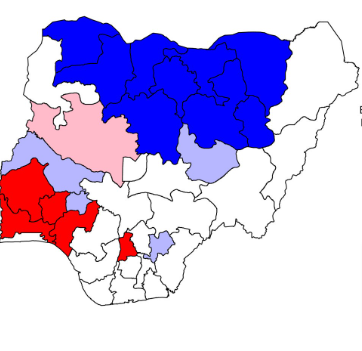An observer from some distant land might be forgiven If he, in trying to make sense of the political scene in our Nigeria today, concludes on the basis of a study of the media’s coverage of events around the election, that there was a lot more underlining unease, than has been reflected on the pages of our newspapers. A generally triumphalist tone has been ringing loudly, in ill-concealed support of the apparent victory of the PDP juggernaut.
Elements in the media, such as the Media Monitoring Group, that was instituted by the Nigeria Union of Journalists and the Nigerian Guild of Editors, came out in the week to express pleasure with the conduct of the Presidential/Gubernatorial elections, calling it “clear testimony that democracy has taken root in the country”.
Even while tacitly acknowledging and “regretting” the “reports of irregularities, intimidation of voters and occasional fracas in some states”, it nevertheless was pleased with the overall conduct of the elections. Except in a few notable cases, the fraud that was largely perpetrated in different parts of the country, which consequently alarmed groups of national and international observers, were often tucked away in the inside pages of the various newspapers on our news-stands.
The fact that the international media highlighted reported cases of fraud, such as the 100 percent “turnout” of voters in a part of Rivers State, with all the voters, casting their ballots, for only President Obasanjo, amongst other irregularities, would incense, the chairman of the Broadcasting Organisations of Nigeria (BON) and DG of Voice of Nigeria, Taiwo Alimi. He was reported to have blasted these foreign correspondents, for their “manifest negative reportage” of the general elections. These reports according to him, “have not reflected a sufficient understanding of the problems. constraints and challenges before the Nigerian nation.” It is as if understanding such problems he highlighted, should vitiate the objective reportage of fraud in an electoral process.
The broad attitude of acquiescence of the media with the broad patterns which the electoral process has thrown up, namely the triumphal gobbling up of vast areas of the Nigerian polity, by the PDP, fits a frame that has underlined the attitude of very significant sections of the press, since the advent of the Obasanjo administration in May 1999. That frame is to accept, and in many national issues, even adopt the perspective of the executive arm of government, as that which approximates with a nebulously-defined “national interest.”
So whether it was in his perpetual effort to emasculate the legislative arms of government, his own political party, or the long-drawn impeachment saga, a most undemocratic “consensus” was built, which largely attempted to protect Obasanjo’s perspective in these different national problems. The obverse was a series of condemnation and negative archetyping of whoever stood against Obasanjo.
Of course, the media terrain has always been an unequal hegemonic platform, which in the context of Nigeria, has for a host of historical reasons, been dominated by the ideological, political cum ethnic biases, of the South-West elite of our country. Having immersed itself into a cocoon of an ethnic-based politics over the years, this elite has been unable to win power in the centre. What it did was to consistently demonise its competitors for power, using its control of the media to assault whoever was in power, from the democratic governments of Prime Minister Abubakar Tafawa Balewa and President Shehu Shagari, in the First and Second Republics, respectively. The media is then employed to undermine these governments, turn the manipulated opinions of people in the country against them, and in the process, prepare the background for the eventual overthrow of these democratic governments.
What is different in the case of Obasanjo, is that he is from their part of the country. His tenure, in the spirit of prebendalist politics, has economically empowered people from his section of the country over the past four years, even when they did not vote for him, in the first place. All is forgiven; so his incredible ineptitude and failure in governance, was not sufficient a platform to mobilise to throw him out of power, for the sake of the future of Nigeria.
It is this background which provides a most illuminating perspective to understand the ways of the Nigerian media and its attitude to the elections, which has just returned Obasanjo for a second term-fraud, irregularities, and all. It should be expected that this is a scenario we would have to live with, in the next four years of the Obasanjo administration.
In our view, the lesson here is that a strong, alternative media tradition, operating within the liberties guaranteed by democratic rule, is very essential now, more than ever before. Such an alternative media tradition will provide counter-hegemonic perspectives in the context of the evolving paradigms of political struggle in Nigeria. It would afford us an opportunity to define the issues differently, canvas an alternative perspective vigorously and contest the terrain of publication on an equal footing in contemporary Nigeria.


